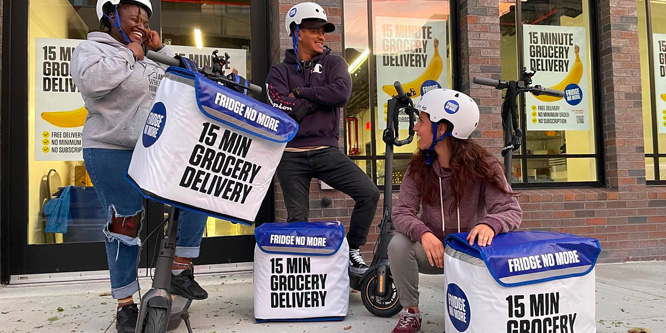In the fast-paced world of delivery operations, the seamless movement of goods is not just a necessity but a critical component of success. Whether goods are at the core of your business or an essential part of your operations, delivery performance is the lifeline connecting you to your customers. In this blog post, we’ll delve into the concept of delivery performance, explore factors affecting it, and provide insights into eight essential key performance indicators (KPIs) and metrics crucial for success. 
What is Delivery Performance?
Delivery performance measures how effectively and efficiently a business handles its delivery operations, gauging the success rate in meeting customer expectations and ensuring timely, accurate deliveries. For businesses dealing with goods, it plays a crucial role in customer satisfaction and overall success. By monitoring and analyzing delivery performance, businesses can identify areas for improvement and implement strategies to enhance their services.
What Can Affect Your Delivery Performance?
- Route Optimization: Inefficient route planning can lead to longer delivery times, increased fuel costs, and reduced overall productivity.
- Vehicle Maintenance: The reliability of delivery vehicles is pivotal for on-time deliveries and preventing unexpected breakdowns.
- Inventory Management: Accurate inventory data is essential to avoid delays due to stockouts or errors in fulfillment.
- External Factors: Weather conditions, road closures, and unforeseen events can disrupt delivery schedules.
- Communication and Coordination: Effective communication is vital for seamless deliveries, ensuring drivers, dispatchers, and customers are in sync.
Why it’s Important to Measure Delivery Performance:
- Customer Satisfaction: Delivery performance shapes customer satisfaction, fostering trust and loyalty, leading to repeat business and positive recommendations.
- Operational Efficiency: Metrics provide insights into operational efficiency, allowing businesses to optimize processes and reduce costs.
- Cost Optimization: Understanding delivery costs is crucial for resource optimization, improving profitability, and financial sustainability.
- Competitive Advantage: Reliable and efficient deliveries set businesses apart, attracting and retaining customers, creating a competitive advantage.
- Continuous Improvement: Regular measurement allows businesses to adapt to changing market demands, proactively implement changes, and maintain a high standard of delivery performance.
8 Delivery Performance KPIs & Metrics You Should be Measuring:
- Number of Completed Deliveries: Highlights the efficiency and effectiveness of delivery operations, showcasing reliability and commitment.
- Order Accuracy: Measures the percentage of error-free deliveries, crucial for customer satisfaction and long-term success.
- First Attempt Delivery Rate: Reflects a well-orchestrated and efficient delivery process, saving time, resources, and enhancing customer satisfaction.
- On-Time Delivery: Measures the percentage of deliveries completed within the promised timeframe, indicating a well-organized delivery process.
- Average Time Per Delivery: Provides insights into the efficiency of the delivery process, helping identify and address inefficiencies.
- Average Cost Per Delivery: Measures average expenses, allowing businesses to make informed decisions about resource allocation and cost management.
- Out-Of-Route Miles: Identifies deviations from efficient routes, impacting fuel efficiency, delivery times, and operational inefficiencies.
- Vehicle Capacity Utilization: Measures the percentage of a vehicle’s capacity utilized, crucial for efficient operations, reduced trips, and lower costs.
Mastering delivery performance requires a holistic approach, from optimizing routes to ensuring customer satisfaction. By diligently measuring and analyzing these key performance indicators, businesses can fine-tune their services, exceed customer expectations, and stay ahead in the competitive landscape.
Have a mobile app idea that you would like to explore? Visit our website and let’s get on a call!
For more content like this, visit our blog!





